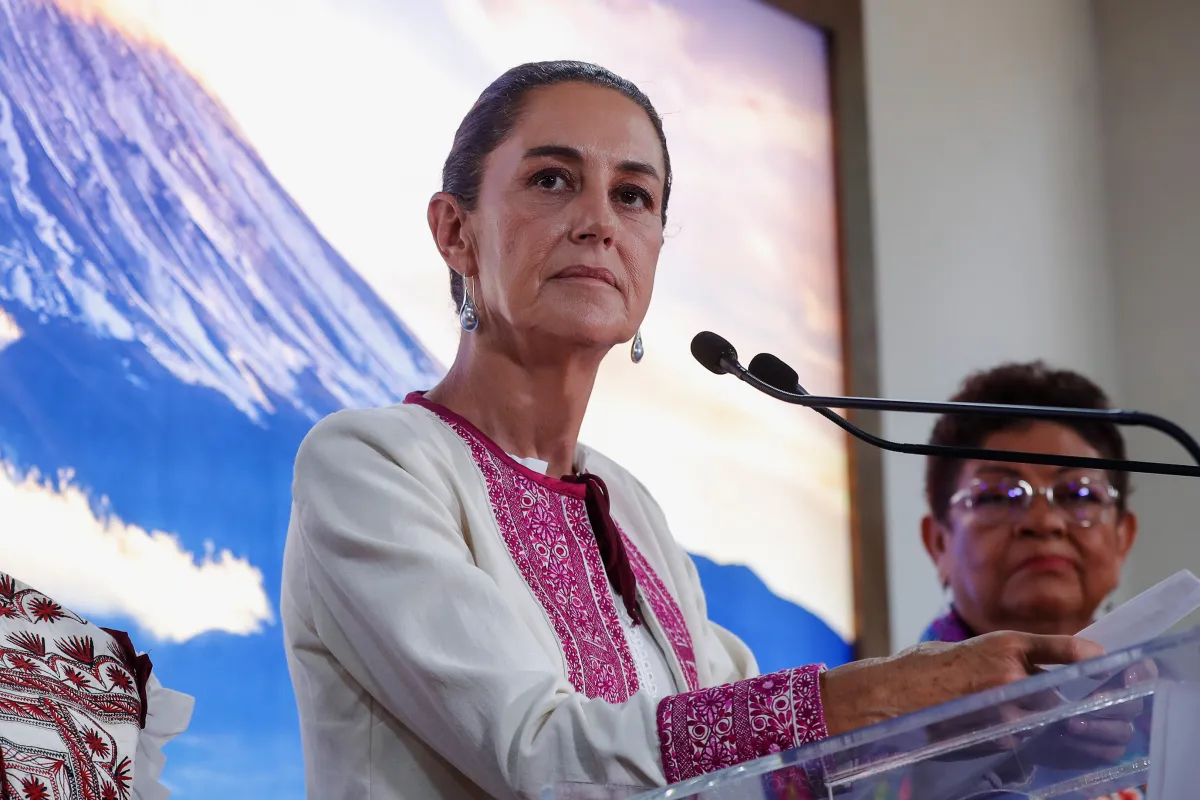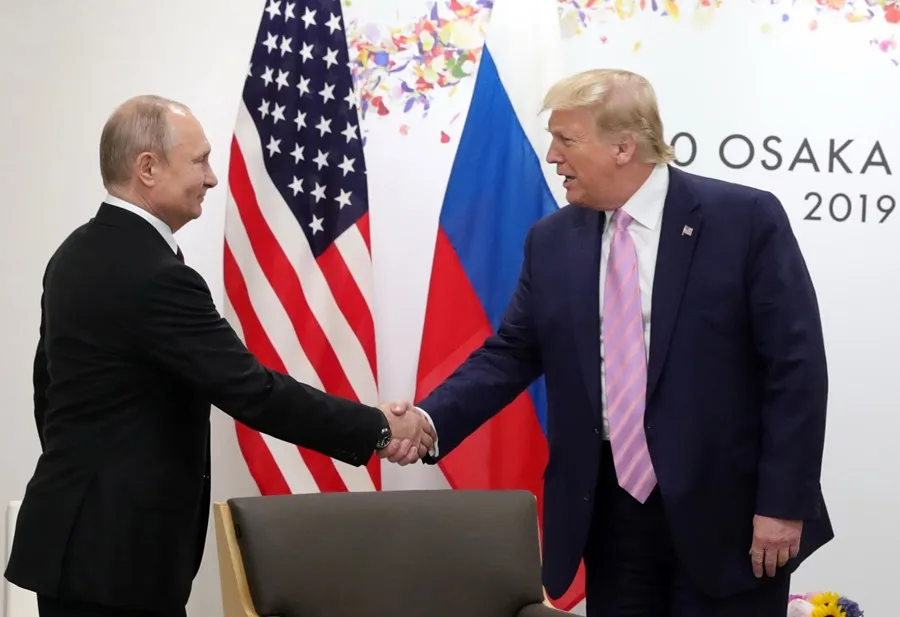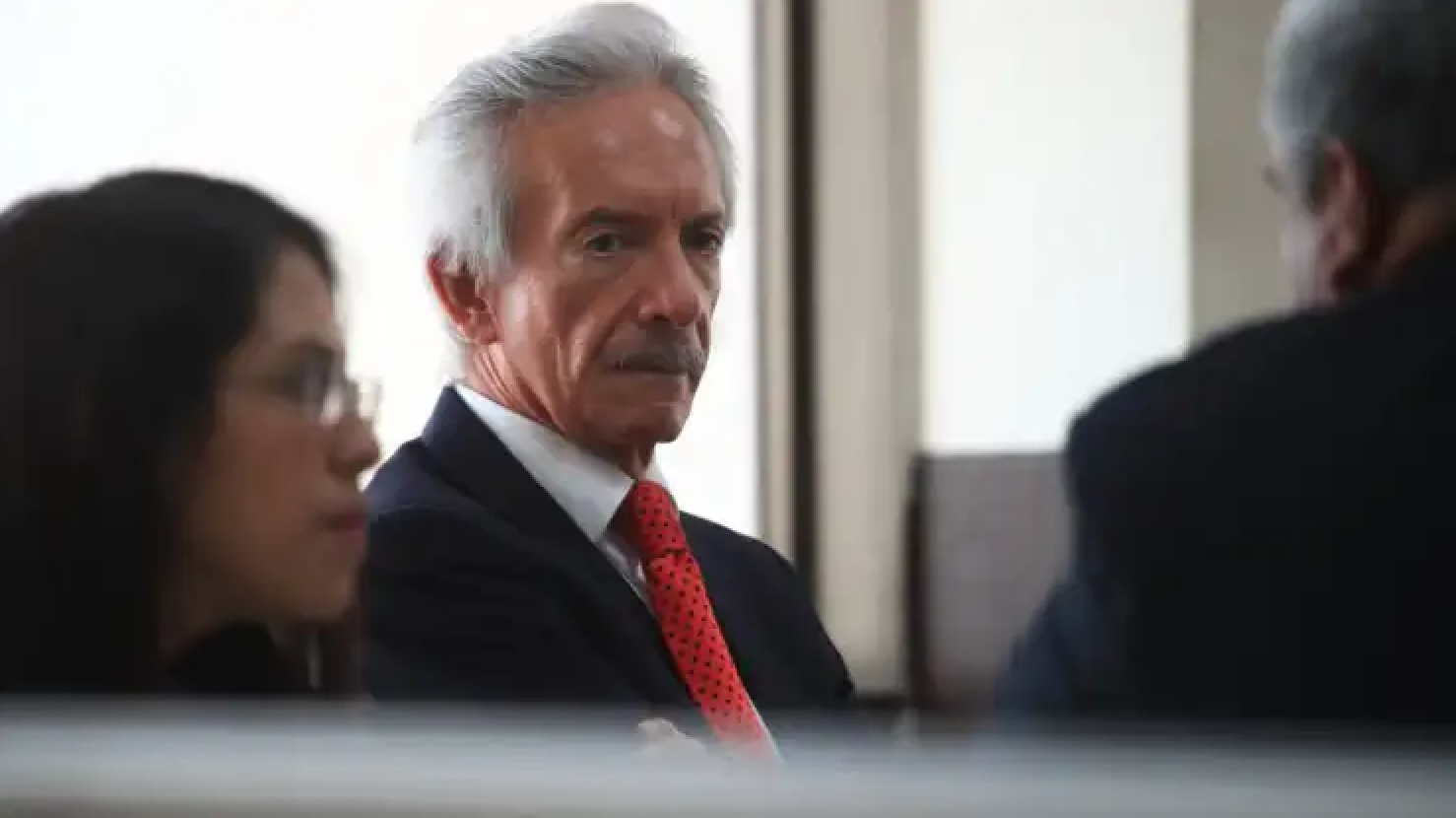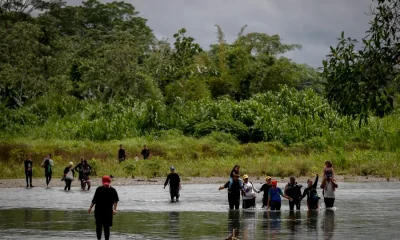International
Sheinbaum says that the indigenous peoples will be subject to law in the Mexican Chiapas

The ruling presidential candidate Claudia Sheinbaum ratified that a central axis of her government project will be the reform of article 2 of the Mexican Constitution. With this, the native peoples will be subject to law, they will be recognized the autonomy of and their forms of organization.
Before more than 7,000 people, he assured that in his administration he will change the face of the state of Chiapas, “through projects that allow care for the environment, the jungles and recognizing the indigenous peoples on the decision of their territories, their natural resources, as well as the culture and their forms of organization.”
He recalled that President Andrés Manuel López Obrador on February 21, on International Mother Language Day, sent the reform initiative to guarantee the rights of the country’s communities and indigenous and Afro-Mexican peoples.
The axis of this amendment, one of the package of proposals made by the Executive Branch on February 5, is “the recognition of indigenous and Afro-Mexican peoples and communities as subjects of public law. As well as the establishment of a legal personality and own patrimony from free self-determination.”
Chiapas is one of the most culturally diverse states in Mexico, largely due to the presence of different indigenous groups in the integration of their societies.
This year, the indigenous peoples have warned of a climate of ‘civil war’ in Chiapas due to the armed conflicts, violence and insecurity that have triggered homicides, disappearances and forced displacements. In particular in indigenous and related communities to the Zapatista Army of National Liberation (EZLN).
Sheinbaum, standard-bearer of the coalition that make up the National Regeneration Movement (Morena), Labor (PT) and Green Ecologist of Mexico (PVEM) parties, was accompanied by the candidate for the governorship of Chiapas, Eduardo Ramírez.
Among his promises of government, Sheinbaum said that for Chiapas “a special program will be opened to look for “fair prices for coffee and corn and it will be a state of development with a humanist look to attend to the migration that comes from the south.”
Sheinbaum endorsed that support for the elderly and young people will continue, so that they have better employment opportunities, health care and access to medicines, so he asked not to believe the lies of his adversaries.
“On June 2, I am sure that love will triumph against hatred, the truth against slander, democracy will triumph against fraud, the indigenous peoples will triumph, humanism will triumph against discrimination, the people of Chiapas will triumph and the people of Mexico will triumph,” he said.
Before hundreds of women and men from the 124 municipalities of the region, Sheinbaum said that in these elections “we are defining the future of the homeland, the future of the people of Mexico, and I am sure that we will do a great job.”
Finally, he recalled that an economic pole will be installed on the southern border of Mexico that will help boost the economy of the region and create new opportunities through the investment of the business sector.
International
Trump urges Putin to reach peace deal

On Monday, U.S. President Donald Trump reiterated his desire for Russian President Vladimir Putin to “reach a deal” to end the war in Ukraine, while also reaffirming his willingness to impose sanctions on Russia.
“I want to see him reach an agreement to prevent Russian, Ukrainian, and other people from dying,” Trump stated during a press conference in the Oval Office at the White House.
“I think he will. I don’t want to have to impose secondary tariffs on Russian oil,” the Republican leader added, recalling that he had already taken similar measures against Venezuela by sanctioning buyers of the South American country’s crude oil.
Trump also reiterated his frustration over Ukraine’s resistance to an agreement that would allow the United States to exploit natural resources in the country—a condition he set in negotiations to end the war.
International
Deportation flight lands in Venezuela; government denies criminal gang links

A flight carrying 175 Venezuelan migrants deported from the United States arrived in Caracas on Sunday. This marks the third group to return since repatriation flights resumed a week ago, and among them is an alleged member of a criminal organization, according to Venezuelan authorities.
Unlike previous flights operated by the Venezuelan state airline Conviasa, this time, an aircraft from the U.S. airline Eastern landed at Maiquetía Airport, on the outskirts of Caracas, shortly after 2:00 p.m. with the deportees.
Interior Minister Diosdado Cabello, who welcomed the returnees at the airport, stated that the 175 repatriated individuals were coming back “after being subjected, like all Venezuelans, to persecution” and dismissed claims that they belonged to the criminal organization El Tren de Aragua.
However, Cabello confirmed that “for the first time in these flights we have been carrying out, someone of significance wanted by Venezuelan justice has arrived, and he is not from El Tren de Aragua.” Instead, he belongs to a gang operating in the state of Trujillo. The minister did not disclose the individual’s identity or provide details on where he would be taken.
International
Son of journalist José Rubén Zamora condemns father’s return to prison as “illegal”

The son of renowned journalist José Rubén Zamora Marroquín, José Carlos Zamora, has denounced as “illegal” the court order that sent his father back to a Guatemalan prison on March 3, after already spending 819 days behind barsover a highly irregular money laundering case.
“My father’s return to prison was based on an arbitrary and illegal ruling. It is also alarming that the judge who had granted him house arrest received threats,” José Carlos Zamora told EFE in an interview on Saturday.
The 67-year-old journalist was sent back to prison inside the Mariscal Zavala military barracks on March 3, when Judge Erick García upheld a Court of Appeals ruling that overturned the house arrest granted to him in October. Zamora had already spent 819 days in prison over an alleged money laundering case.
His son condemned the situation as “unacceptable”, stating that the judge handling the case “cannot do his job in accordance with the law due to threats against his life.”
-

 Central America5 days ago
Central America5 days agoNicaragua denounces Costa Rica’s position in SICA as aligned with foreign interests
-

 Central America5 days ago
Central America5 days agoNicaragua’s new judicial law consolidates power in Ortega and Murillo’s hands
-

 Central America5 days ago
Central America5 days agoPanama’s president declares Darién gap ‘closed’ amid sharp drop in migrant flow
-

 International3 days ago
International3 days agoSon of journalist José Rubén Zamora condemns father’s return to prison as “illegal”
-

 International5 days ago
International5 days agoMarco Rubio warns Venezuela against military action against Guyana
-

 International3 days ago
International3 days agoMiyazaki’s style goes viral with AI but at what cost?
-

 Central America2 days ago
Central America2 days agoPanama police clarifies that Interpol alert for Martinelli is still pending
-

 International2 days ago
International2 days agoDeportation flight lands in Venezuela; government denies criminal gang links
-

 Central America16 hours ago
Central America16 hours agoU.S. Homeland Security Secretary urges Mexico to strengthen Guatemala border
-

 International16 hours ago
International16 hours agoTrump urges Putin to reach peace deal
-

 Central America16 hours ago
Central America16 hours agoPanama grants Martinelli 72-hour extension to travel to Nicaragua
-
Central America4 days ago
Nicaragua revokes legal status of 10 more NGOs, bringing total to over 5,600















